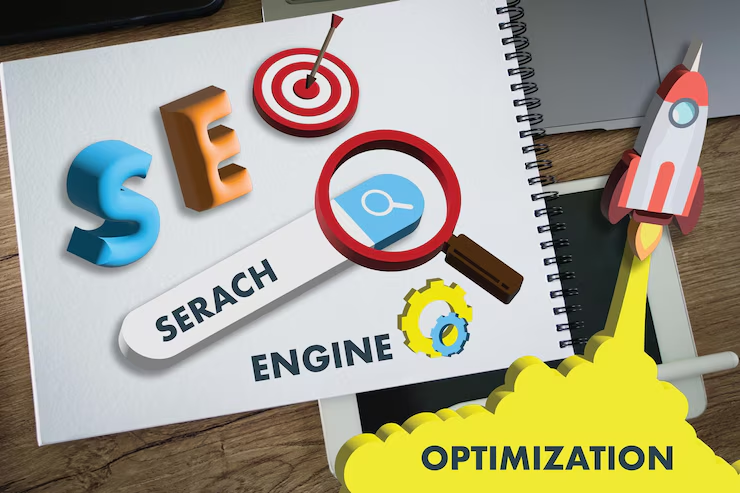SEO Strategies, Techniques, and Best Practices Search Rankings
Search Engine Optimization (SEO) is the key to getting your website noticed online. It helps your site show up higher in search results—more visibility means more visitors and more chances to grow. As search engines like Google change their rules, staying on top of SEO strategies is more important than ever. This article dives into everything you need to know about SEO—how it works, how to improve it, and how to stay ahead of the competition.
Understanding SEO: The Foundation of Digital Success
What is SEO and Why It Matters
SEO stands for Search Engine Optimization. It’s all about making your website attractive to search engines so they rank it higher in results. Better rankings lead to more website visitors, which can bring in more customers and boost your revenue. In a busy online world, SEO is vital for standing out among your competitors.

How Search Engines Work
Search engines like Google crawl the web by visiting websites and collecting information. They then analyze this data and decide where your site should appear when someone searches for related keywords. The process involves three main steps:
- Crawling: Robots scan web pages for content.
- Indexing: The engine stores information about pages.
- Ranking: Results are ordered based on hundreds of factors.
Imagine Google as a giant librarian. It sorts through billions of pages to find the most relevant books—your website included—then displays those first when someone searches.
The Components of SEO
SEO isn’t just one thing. It combines three main parts:
- On-page SEO: Focuses on content and how your pages are built.
- Off-page SEO: Looks at backlinks, social signals, and your site’s reputation.
- Technical SEO: Ensures your website’s behind-the-scenes setup helps search engines crawl easily.
Knowing how these pieces work together can help you develop a well-rounded SEO strategy.
Keyword Research: The Cornerstone of Effective SEO
Why Keywords Are So Important
Keywords are the words and phrases people type into search engines. Choosing the right keywords helps your website appear where your audience is looking. When aligned with their intent, keywords can dramatically boost your search rankings.

The Best Tools for Finding Keywords
Start by using tools like Google Keyword Planner, SEMrush, or Ahrefs. These help you spot
- High-volume keywords with low competition
- Niche-specific phrases for more targeted traffic
- Long-tail keywords that match specific searches
How to Use Keywords Effectively
Place your keywords carefully—include them in page titles, headers, and URL slugs. Avoid stuffing keywords into your text, as it looks spammy and can hurt your rankings. Keep an eye on how your keywords perform and tweak your strategy based on results.
On-Page SEO: Optimizing Content for Search Engines
Create Content That People Want
Your content should be both helpful and easy to read. Use clear headlines, short paragraphs, and bullet points. Craft catchy titles and meta descriptions that make people want to click. Remember, search engines favor useful content that answers users’ questions.

Structuring Your Site
Use headers (H1, H2, H3) to organize your content. Internal links between pages improve navigation and help search engines understand your site’s structure. Make sure your site hierarchy is simple and logical for both users and crawlers.
Using Visuals
Images, videos, and infographics break up text and boost engagement. Don’t forget to add descriptive alt text to images—this helps search engines understand what your visuals show and improves accessibility. Fast-loading pages keep visitors happy and boost your SEO.
Off-Page SEO: Building Your Website’s Authority
Earning Quality Backlinks
Backlinks from reputable sites are like votes of confidence. Create great content that others want to link to. Reach out to industry partners or influencers for collaboration. Avoid shady tactics that could get you penalized, like buying links.
Backlinks from reputable sites are like votes of confidence. Create great content that others want to link to. Reach out to industry partners or influencers for collaboration. Avoid shady tactics that could get you penalized, like buying links.

The Power of Social Media
Social signals—likes, shares, and mentions—also influence SEO. Building an active presence on platforms like Facebook, Twitter, and LinkedIn can help boost your brand and drive traffic to your website.
Managing Your Reputation
Encourage happy customers to leave positive reviews. Respond professionally to complaints or negative feedback. A trustworthy reputation can improve your visibility in local searches and overall rankings.
Technical SEO: Ensuring Your Site Is Healthy
Make Your Site Crawl-Friendly
Ensure that search engines can easily find and index your pages. Use robots.txt to control what they see, and submit XML sitemaps to guide crawlers. Fix any broken links or crawl errors quickly.

Mobile Optimization
Most searches happen on phones. Use a responsive design that adapts to all screens. Test your site with tools like Google’s Mobile-Friendly Test. A smooth mobile experience boosts your chances of ranking higher.
Improve Speed and Security
Fast websites keep visitors happy—Google does, too. Use tools like Google PageSpeed Insights to find speed issues. Switching to HTTPS with an SSL certificate protects your site and signals trustworthiness to search engines.
Monitoring, Analytics, and Continuous Improvement
Track Your Progress
Use Google Analytics and Search Console to check your traffic, bounce rate, and keyword rankings. Fresh data reveals what’s working and what isn’t, guiding your next moves.
Conduct Regular Audits
Perform SEO audits periodically to find and fix problems with your site. This keeps everything running smoothly and ensures you stay aligned with the latest best practices.
Stay Informed
SEO rules change often. Follow industry blogs, attend webinars, and stay updated on algorithm updates. Adapting quickly keeps your rankings safe and steady.
Conclusion
Getting your website to rank high in search results takes effort, but it’s well worth it. Focus on quality content, technical health, and building trust through backlinks and social signals. SEO is an ongoing process—keep learning, experimenting, and improving. When done right, your site will attract more visitors, generate leads, and grow your business. Start today, and watch your search rankings






